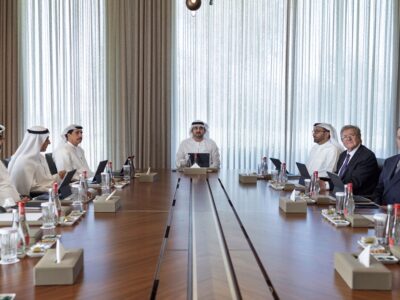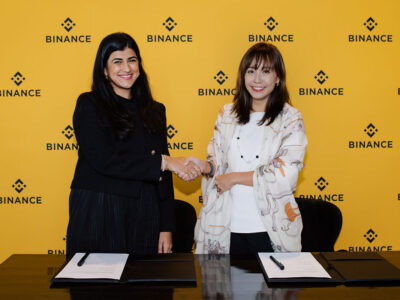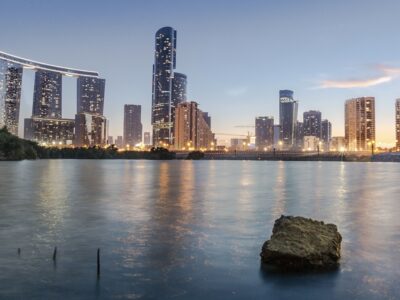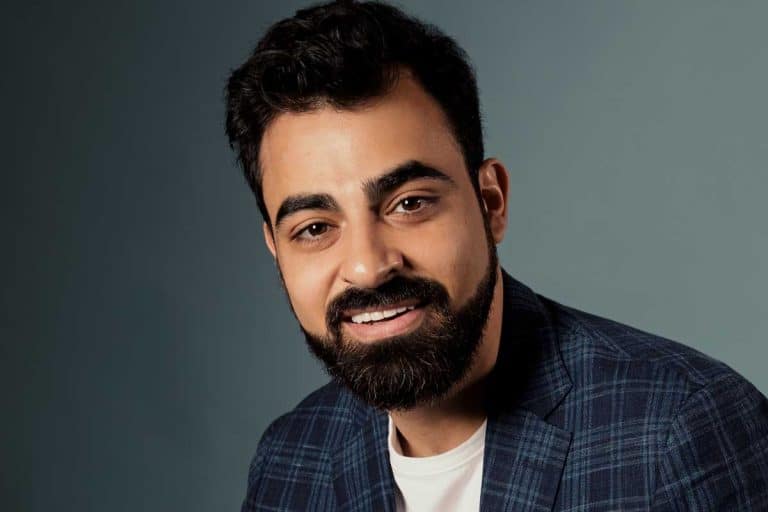Abdallah Abu-Sheikh is a hard worker but he expects you to work harder.
Talking with Abu-Sheikh is like opening the door to the world of the extravagant, hard-working, twenty-four-seven tech entrepreneurs, with our conversation making frequent reference to some of the sector’s biggest legends, including Elon Musk, Bill Gates, and Steve Jobs.
Being a member of this elite club is no easy feat, however, and the world is quick to forget the effort necessary to gain entry. Members of this club often started working 100 plus hour weeks, driving employees to succeed and embracing, what Abu-Sheikh terms, the culture of “creative toxicity.”
Here in the Middle East, Abu-Sheikh believes the region is at inflection point, with, “a very bad philosophy going around… that innovation and invention grow in comfort, and that you need to work in an extremely comfortable work environment where nobody tells you anything you don’t want to hear, where everybody is smiling and everything is all rainbows and butterflies.”
This, he believes, is “absolutely false,” and in a region where startups are booming – funding for MENA startups alone hit $3bn in 2022 – fixing culture will be key to long-term sector success. “Most people know the story of Steve Jobs, he started Apple out of a garage, but what most people don’t know is that it was an extremely toxic culture at Apple when it started. Now it’s out and you can read about it. The same was true of Microsoft, the same is true of Netflix, the same was true of any innovation,” Abu-Sheikh says.
This version of culture is what Abu-Sheikh references as “creative toxicity,” requiring an almost inhuman ambition to succeed, coupled with an extremely clear vision and highly driven employees. Founders and employees need to be okay “spending 20 hours a day working, they need to be okay working weekends, not taking holidays for a few years at a time. They are okay with not being nice to people, and okay speaking in certain tones. That is how talent is cultivated.”
For the Middle East, Abu-Sheikh’s message on success is clear: “We need to wrap our head around is the fact that it is hard work to succeed. It is toxic work, and its not very nice inventing.”
Success cannot be achieved in a vacuum, and solving the talent equation remains an important factor in the drive to growth. “Gold is forged by fire, and so is talent. It’s not done in comfort, it’s done under absolute extreme pressure,” Abu-Sheikh says.
Despite the comparisons between Abu-Sheikh and other tech titans, he says his real inspiration remains his father, who tragically passed away when he was a teenager.
“If you’re a high performing individual it’s very difficult to balance between remaining human and the financial machine. I think [my father] found a very good balance between creating value but doing it in a way where it’s very graceful and where a lot of people benefit,” he explains.
Understanding this is still a journey that Abu-Sheikh is on, noting that, “the more I get into business, the more I understand that it is very difficult to do and takes a lot of effort.”

From shadow to success
Today, Abu-Sheikh is a successful technology entrepreneur, launching, and exiting, several profitable businesses which have created “billions of dollars of value for shareholders and hundreds of millions of dollars for people who have worked with us.”
These firms include home cleaning super app Rizek, UAE electric vehicle manufacturer Barq EV, and his latest company AstraTech. Last year, the company received $500m in funding, and in January 2023 acquired Middle East internet calling platform BOTIM.
However, Abu-Sheikh’s success was not always a given – he refers to himself as a “really bad student that didn’t do very well” while studying at a boarding school in Jordan. Abu-Sheikh’s father was himself a very successful entrepreneur, having started his own companies, and his experience growing up in his father’s shadow kept him “very sheltered.”
After Abu-Sheikh’s father passed away, he was left with a sudden need to leave the shadow of his father’s success.
“It was all this responsibility coming in at once. There are moments like this in life that are a turning point, where you need to make a decision and rise up to the occasion or crack under the pressure because you have all this responsibility,” he explains.
From a poor student, Abu-Sheikh turned his education around, deciding instead to go university. It was here he got his first taste for business by started an operation focused on doing other student’s homework, an operation that he quips got one of his friends “caught.”
Up next was five years on renewable energy in Africa, with a company he started building between $1.3-1.4bn worth of solar wind and waste projects on the continent in more than 14 countries. In 2018, during the height of a global renewable energy frenzy, Abu-Sheikh took the daring decision to exit the business – “a lot of people told me ‘You’re exiting too early, you’re leaving a lot of money on the table,’ but everybody that didn’t exit saw the crash.”
Instead, after a profitable exit, he told himself that he was “retired and wasn’t going to work anymore,” but kept the door open with a venture investing business. “My investment thesis was very simple and stupid: It was invest $250,000 in anything, as long as I get access to the founder or whoever’s building the project. That led me to being invested in a lot of early-stage things, like AI, and a lot of big companies, along with a lot of things that never saw the light of day,” he says.
Unsurprisingly, this retirement lasted only six months because “I wanted to go back into building.”

Rise of the ultra-platform
Today, Abu-Sheikh’s attention remains in his forte – tech – but beyond what he refers to as the “last mile of technology.”
In his view, the region will only build long-term success if businesses are able to capitalise on building the infrastructure behind technology, and not the front-end that consumers most often interact with. In one example, using a ride sharing platform, Abu-Sheikh explains that in the Middle East native ride sharing platforms exist, but that while this may be the “cherry on top, there’s a full cake being baked underneath.”
Computing infrastructure, cloud infrastructure, programming infrastructure, and even the programming languages themselves, are all being made outside of the region and by external developers.
Changing this dynamic is what led Abu-Sheikh to build his “ultra-platform” with AstraTech.
“An ultra-platform gives us a few things on the digital sovereignty side of things. It’s a platform that’s developed in this part of the world, and is not somebody else’s solution that we’re trying to force on this side of the world. Localisation is a big advantage in developing technology,” he explains.
“The other part is that an ultra-platform is built on the economics of disintermediation. There are no middlemen that are trying to push margins on top of somebody else’s goods and services.”
The smartest man in the room (for now)
On the subject of legacy, Abu-Sheikh is quick to note that he realised from a very young age “that you only have a very limited time.” “You can be relevant with your ideas, your thoughts, your creativity only for a very limited amount of time. You’re only the smartest person in the room for a very limited amount of time,” he says.
Especially in Abu-Sheikh’s chosen field – technology – there are “new kids inventing things every other hour of the day.”
“If you take that success, that momentary success that you have, and you invest it into other people, to empower them and enable them to do better than you have done, then you’re probably doing something right,” he says.





